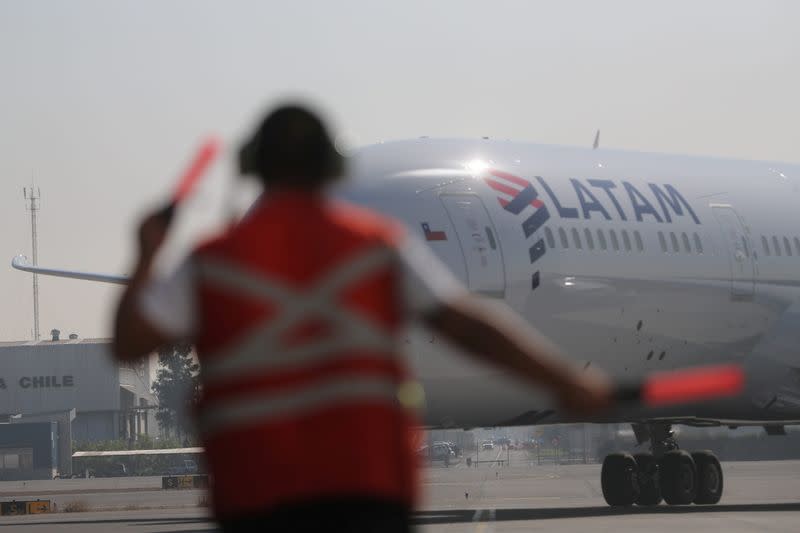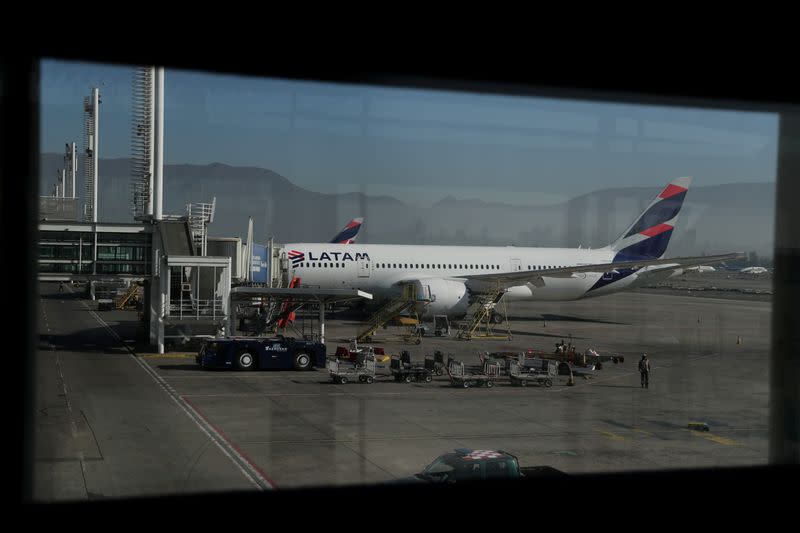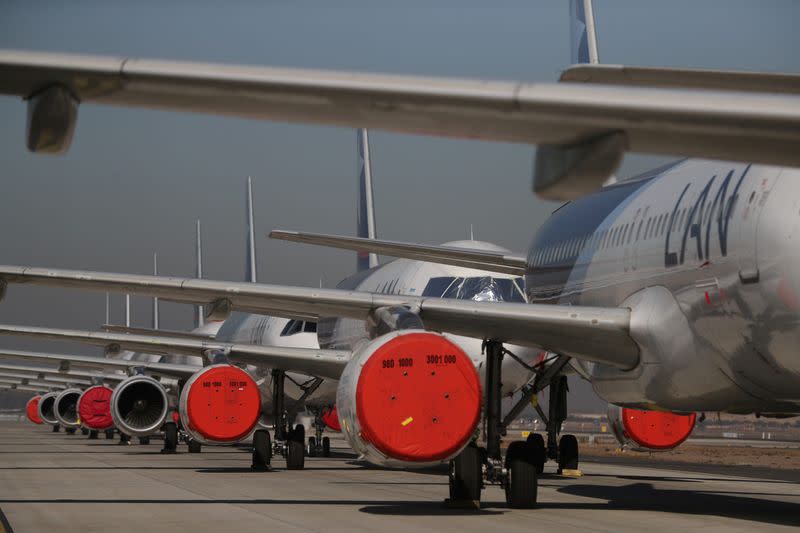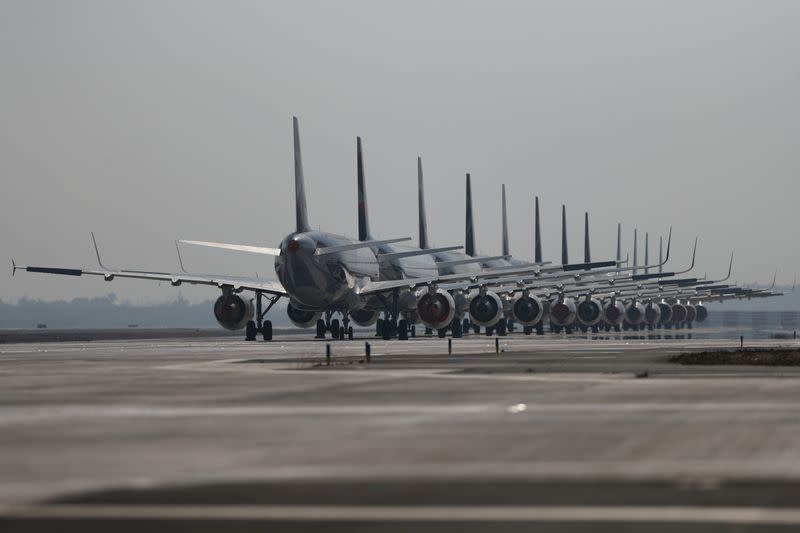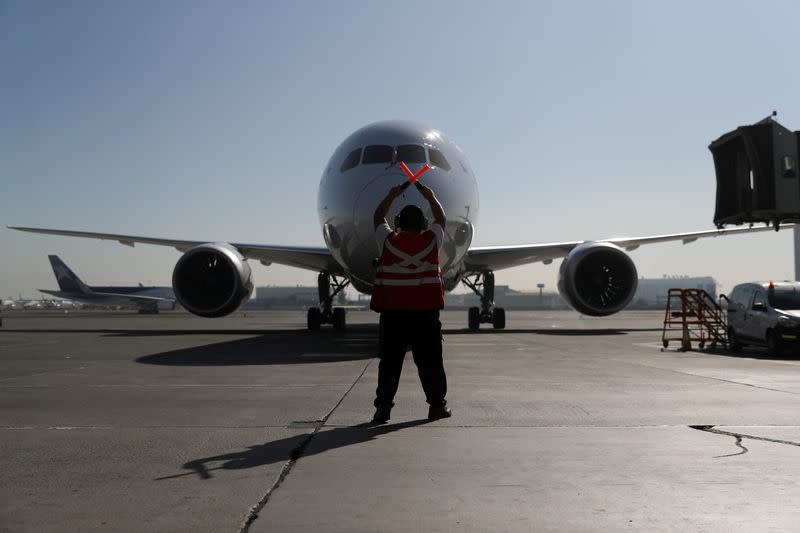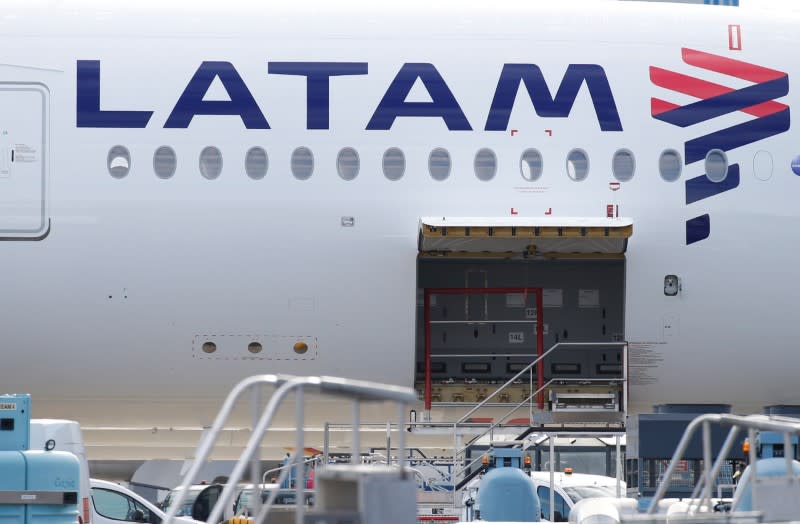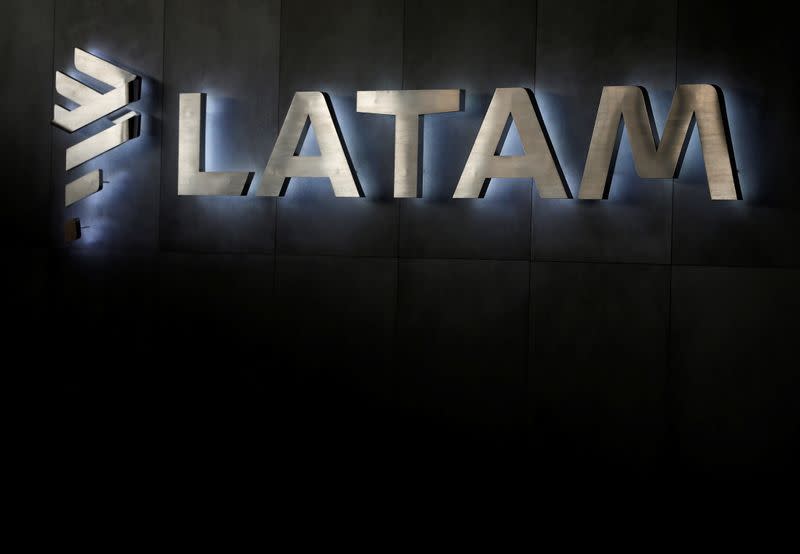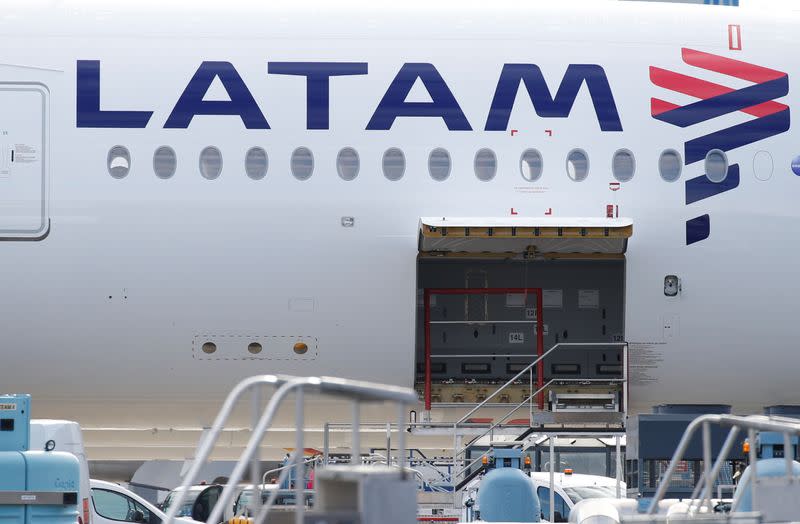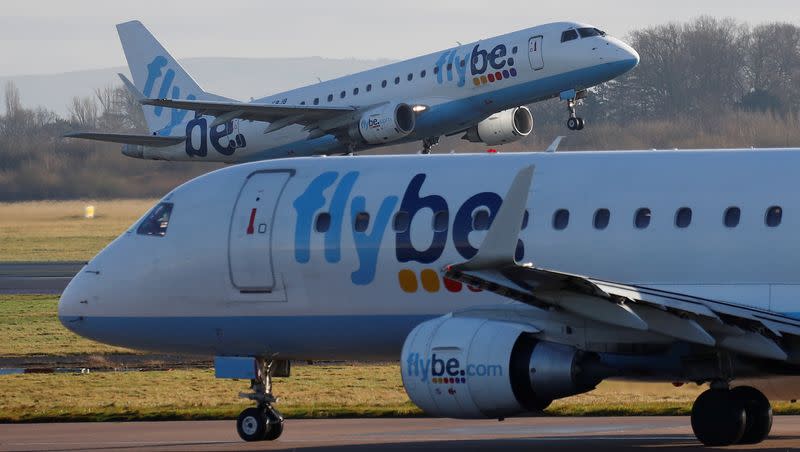LATAM becomes largest airline driven to bankruptcy by coronavirus
By Marcelo Rochabrun, Fabian Cambero and Tatiana Bautzer
(Reuters) - LATAM Airlines Group <LTM.SN>, the continent's largest carrier, filed for U.S. bankruptcy protection on Tuesday, becoming the world's largest carrier so far to seek an emergency reorganization due to the coronavirus pandemic.
The filing highlights the financial weakness of Latin America's carriers, following a similar bankruptcy earlier this month by the region's No. 2 airline, Avianca Holdings <AVT_p.CN>.
But unlike Avianca, which experienced management turmoil and losses, Chile's LATAM posted profits for the last four consecutive years totaling more than $700 million. LATAM had also approved a dividend payment this year, in contrast to other carriers that have halted payouts.
One of the world's largest airlines, LATAM said it would continue to fly through its bankruptcy restructuring.
LATAM shares closed down 36% after falling as much as 58% in Santiago.
Latin American governments, many under severe budget constraints themselves, have been reluctant to bail out their key airlines, in contrast to the United States and Europe.
Chile's finance ministry said in as statement LATAM is a "strategic company for Chile" and that the government would "consider" how it could contribute to LATAM's restructuring, but it did not offer a bailout.
In Brazil, LATAM has been negotiating a bailout of up to 2 billion reais ($367.45 million) that has yet to materialize.
LATAM's Brazil unit is not part of the bankruptcy, although the company may file for bankruptcy there as well if the negotiations for aid fall through.
The airline's CEO for Brazil Jerome Cadier told Reuters on Tuesday evening that LATAM would rather not go through a separate bankruptcy filing in Brazil.
"The history here shows that the vast majority of companies don't make it out of bankruptcy restructuring because the process is too complicated," Cadier said.
Delta Air Lines <DAL.N> last year paid $1.9 billion for a 20% stake in LATAM, becoming the No. 2 shareholder in the company.
"We remain firmly committed to our partnership with LATAM and believe that it will successfully emerge a stronger airline and Delta partner for the long term," Delta CEO Ed Bastian said in a statement.
LATAM said its bankruptcy filing would seek to expedite the timeline for the necessary antitrust approvals for it and Delta to coordinate flight routes between Latin America and the United States. The plans still need approval from the U.S. Department of Transportation, as well as regulators in Chile, Brazil, and a few other countries in South America.
In the lead-up to the bankruptcy filing, LATAM laid off 1,800 employees out of more than 40,000 in total.
TROUBLED MERGER
LATAM is an instantly recognizable brand for South Americans, dominating international air travel in the region, as well as a leading domestic flight operator in Brazil, Colombia, Chile, Argentina, Peru and Ecuador.
In addition to Brazil, subsidiaries in Argentina and Paraguay are also not part of the bankruptcy process.
LATAM said it raised up to $900 million to support operations through its bankruptcy reorganization from major shareholders, including the Cueto family, which controls the airline, and Qatar Airways.
In addition, LATAM has $1.3 billion in cash on hand.
LATAM was born in 2012 through a merger between Chile's LAN and Brazil's TAM, spawning a carrier with large aircraft order books and major exposure to Latin America's top economy as it went through its worst recession on record.
It has since dropped many plane orders but maintains 44 with Airbus <AIR.PA> and seven with Boeing Co <BA.N>. LATAM said it would seek to cancel several of those orders.
LATAM did disclose that Delta canceled the planned purchase of four Airbus A350s from LATAM, and paid $62 million to break the deal.
LATAM said that as of Tuesday its debts totaled $18 billion.
The airline was downgraded by S&P and Fitch on Friday after not paying interest and principal on $1 billion worth of debt tied to new aircraft purchases.
(Reporting by Marcelo Rochabrun in Sao Paulo; Additional reporting by Tatiana Bautzer in Sao Paulo, Rama Venkat in Bengaluru, Tracy Rucinski, Fabian Cambero and Dave Sherwood in Santiago, and Jamie Freed in Sydney; Editing by Bernadette Baum, Matthew Lewis and Aurora Ellis)
